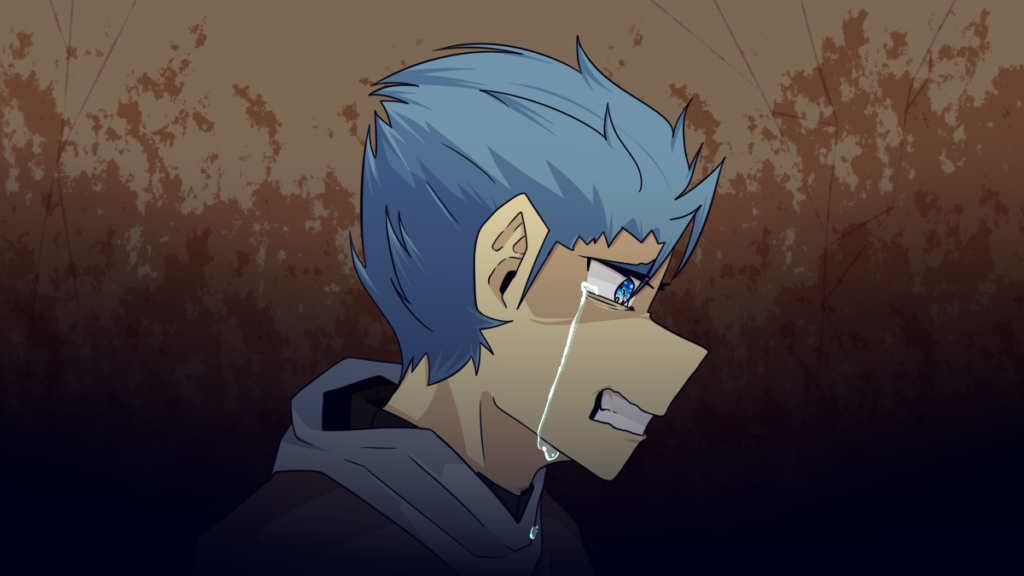When a loved one dies you have an overwhelming feeling of sadness, this is called grief. Your mental health can be affected if you don’t go through the process of grieving. It is natural after a loved one dies. It is important to keep a positive mental health during this process. When grieving a loved one there is healthy and unhealthy ways to do so.
The process of grief
There are 5 steps in the grieving process, and these are important steps to go through when losing a loved one.
- Denial is the first process. This is when you think your loved one will come back, you may still be dealing with the shock of death.
- Anger. Becoming angry at the realisation your loved one is no longer coming back. In some circumstances you will be angry about how they died, if you are religious you start to lose faith.
- Bargaining. This is when you say things like “if only,” thinking of things you could have done different when that person was alive. In some circumstances you might feel you could have prevented their death.
- Depression. It becomes unhealthy when you stay depressed too long after a loved one’s death. it will affect your mental health.
- Acceptance is the last part of grieving. This is realising that your loved one is not coming back and moving forward in your life without them.
Recently a new stage has been found in the process of grieving, it is finding meaning. An example of finding a new purpose is Ashley Cain and his girlfriend Safiyya. They recently had a young baby daughter who died from cancer, after her death they found a new meaning in life building their daughters legacy. Together they created ‘The Azaliyah Foundation.’ In this charity they put all their hard work and emotions into helping other young children with this illness.

Healthy grief
There is a healthy and unhealthy grief process. Don’t put pressure on yourself to rush grief as it has no time frame. Grieving in a healthy way includes going through all 5 stages. It is important to not get stuck in one of the stages, your mental health will deteriorate. When a loved one dies it almost certainly affects your mental health negatively. Practicing self-care prevents you from going into self-destruction mode. Sharing good memories with others is good as you showing you are still grieving but be capable of moving forward. In certain situations, you won’t be able to start the process of healthy grieving until you get closure This could be finding out how your loved one passed away. When a loved one dies taking time off work and school to grieve can be beneficial. Ignoring your emotions can delay your grieving process.
Unhealthy grief
Unhealthy grief can have on your mental health. Grief can turn unhealthy in many ways. The most common ways are ‘staying strong.’ Grieving happens almost immediately after a loved one dies but staying strong prolongs your grieving process this can turn unhealthy very quickly. Your physical and mental health can begin to be affected. This starts an unhealthy grieving process. The inability to continue with daily life can start to affect your physical health, not eating or practising personal care affects your physical health as it can make you ill or prone to infection.
Depression can sink in when you don’t grieve healthily because you start isolate your feelings from friends and family, you start feeling lonely. Starting to grieve people together if they have passed away in a close time frame to each other causes a negative emotional state to take control over you. This can start an unhealthy grief process. This is because you have automatically stopped your grieving process for the first death and instantly started your grief for the next death. You should attempt to grieve loved ones separately as grieving them all together can cause your mental health to deteriorate.
The effects of unhealthy grief
Feeling like your loved one’s death has recently happened can cause the process of unhealthy grief to start and have many different effects on your mental health. You may possibly be subjected to feelings of self-harm and suicide. Relationships can be impacted as you grieve unhealthily. When you don’t grieve it can impact your relationships. Talking to friends and family can bring you comfort when struggling with this process. In some cases, you may need to accept that you will never get the answers you are looking for and that you need to move forward without them, this is part of getting past unhealthy grief. Moving on from this is hard but a necessary to push forward. Depending on the reason for death you may want justice, not getting the justice you wanted for a loved one’s death can turn your grief harmful.

What happens if you don’t grieve at all?
Without grieving at all you are more prone to depression and anxiety, becoming numb to all emotions and the start of an eating disorder along with substance abuse.
Substance abuse is serious and has awful impacts on all aspects of your health. Abusing substances causes health problems and can be life threatening. You are more prone to heart attack, collapsed veins, lung conditions and damage to your immune system. Substance abuse changes your behaviour, as you act out of character you can lose friends. Aggression, loss of self-control and severe paranoia are all side effects of substance abuse and can impact your daily life.
List of items that can start substance abuse:
- Prescription drugs
- Nicotine
- Alcohol
- Legal highs
- Illegal drugs
- Solvent abuse
Overuse of the items listed can be the start of substance abuse.
Seeking help with unhealthy grief
Long-lasting grief can cause you to suffer from broken heart syndrome, this can be fatal. You may struggle if the death was unexpected, you didn’t get a chance to say goodbye, or you were not on good terms with your deceased loved one, it may be harder if the death was a younger person or baby. Seeking help from your local GP is advised if you are really struggling. Your local GP can refer you to a councillor who is a specialist in the grief process. A support network is a group of friends and family that help you through difficult times in life. Having one could make it a little easier when having someone to talk to when suffering with the emotional pain.



